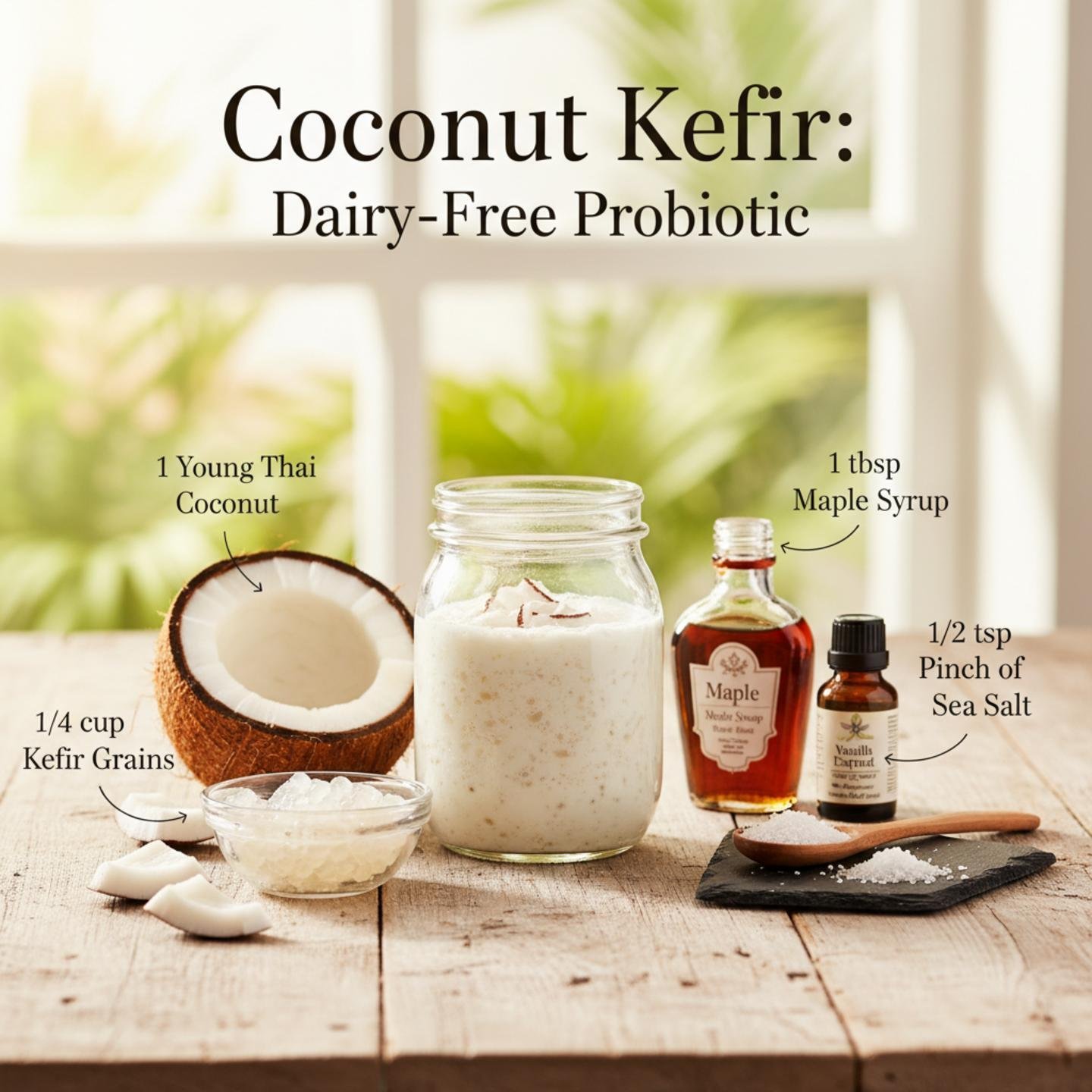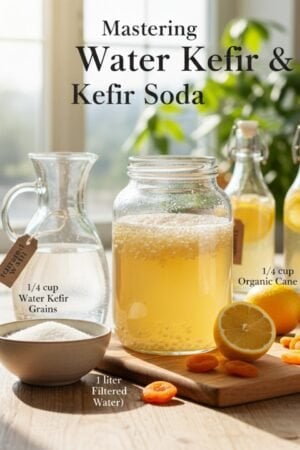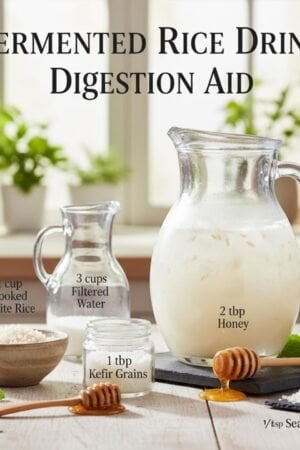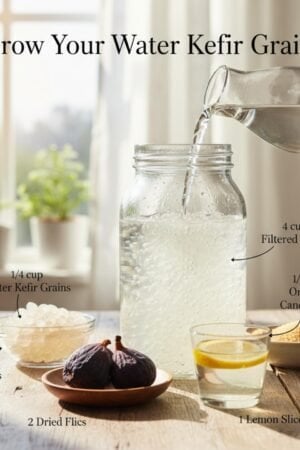Learn to make creamy, probiotic-rich coconut milk kefir at home, a fantastic dairy-free alternative for supporting gut health and digestion. This recipe yields a delicious, tangy fermented drink.
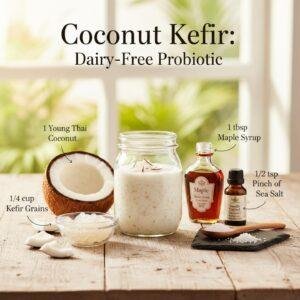
Coconut Kefir: Dairy-Free Probiotic
Learn to make creamy, probiotic-rich coconut milk kefir at home, a fantastic dairy-free alternative for supporting gut health and digestion. This recipe yields a delicious, tangy fermented drink.
Ingredients
- 1 can full-fat coconut milk 400ml
- 1 packet dairy-free kefir starter culture or 2 tablespoons existing coconut milk kefir (for subsequent batches)
Instructions
- 1. Gently warm the full-fat coconut milk in a saucepan over low heat until it's liquid and thoroughly combined, without any solidified cream. Do not let it boil. Allow it to cool to room temperature (around 68-78°F or 20-25°C). It's crucial it's not hot, as high temperatures will kill the starter culture.
- 2. Pour the cooled coconut milk into a clean, sterile glass jar. Add the dairy-free kefir starter culture. If using an existing kefir batch as a starter, add 2 tablespoons per cup of new coconut milk.
- 3. Stir the mixture gently with a non-metallic spoon until the starter culture is fully dissolved and incorporated.
- 4. Cover the mouth of the jar with a breathable cloth (like cheesecloth or a coffee filter) and secure it with a rubber band. This allows air circulation while keeping contaminants out.
- 5. Place the jar in a warm spot, out of direct sunlight, for 24 to 48 hours. Ideal fermentation temperature is 68-78°F (20-25°C). The warmer the environment, the faster it will ferment.
- 6. After 24 hours, check for signs of fermentation: the mixture might have thickened slightly, and it should have a pleasant tangy aroma. Taste a small amount; if it's tangy to your liking, it's ready.
- 7. Once fermented to your preference, remove the cloth, stir the kefir, and seal the jar with an airtight lid. Refrigerate immediately to halt the fermentation process.
- 8. Enjoy your homemade coconut milk kefir chilled. It's delicious on its own, blended into smoothies, or poured over granola.
Notes
For the best results, use full-fat canned coconut milk, free from gums or additives, if possible. The fermentation time can vary based on room temperature and desired tanginess; taste test after 24 hours. Store finished kefir in an airtight container in the refrigerator for up to one week. You can re-culture a new batch using some of your finished kefir, typically at a ratio of 1-2 tablespoons per cup of new coconut milk.
